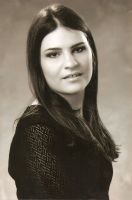Alfred Lord Tennyson, Robert Browning and Charles Dickens
Tennyson was the son of a clergyman and as a boy decided to devote his life to poetry. He went to Cambridge University, where he was a fellow student of Thackeray`s. Almost from first to last he was a most successful poet. His Idylls of the King were based on ancient Celtic legends. The Princess shows Tennyson`s conception of the feminist movement which was then beginning. In Memoriam, dedicated to the memory of a dead friend, illustrates the thoughts of the period on life, death and the soul. Tennyson also wrote dramas founded on British history, and, as poet Laureate (from 1850), many patriotic poems. The Lotos Eaters, Oenone, and other poems show clear signs of classical influence. All Tennyson`s verse is very melodious and beautiful and served as a refuge from the prosaic and commercial life of the age.
Browning had little schooling but read poetry and studied music and art. He escaped even more completely than Tennyson from the life of nineteenth century England, by living in Italy and writing mostly of Italian Renaissance subjects. One of his first long poems was Paracelsus (1835), which was followed by Pippa Passes in 1841. From that time until 1868 he wrote many lyrics and short poems and then The Ring and the Book. Browning`s work is dramatic and psychological, but it has not the elegance of Tennyson`s verse. His plays, like all verse plays of this period, were unsuccessful.
As England became more industrialized, a wealthy middle class grew up with leisure for reading novels. Thus the nineteenth century is remarkable for great novelists. The novels of this period were long, their plots were intricate and rambling, and their characters very numerous. Novels were often published in parts and it is said of Dickens that he did not think out the plot of a whole novel before he began to write it, but allowed the incidents to develop from part to part.
Dickens` parents were poor, his father being imprisoned for debt, and as a boy he had to work in a warehouse, receiving most of his education from the novels which he liked to read. Later he was trained as a clerk and became a reporter in the House of Commons. He wrote articles for periodicals, and his first book was Sketches by Boz (1836). Pickwick Papers (1837-9) had a great success. In Oliver Twist Dickens criticized institutions for the care of poor children, in Nicholas Nickleby private schools, and in Little Dorrit the imprisonment of debtors and the inefficient working of government departments. In David Copperfield, many scenes are taken from Dickens` own childhood. A Tale of Two Cities is a story of the French Revolution.
Although Dickens had a serious purpose in much of his work, his books are full of humour, and the characters are alive and varied.
